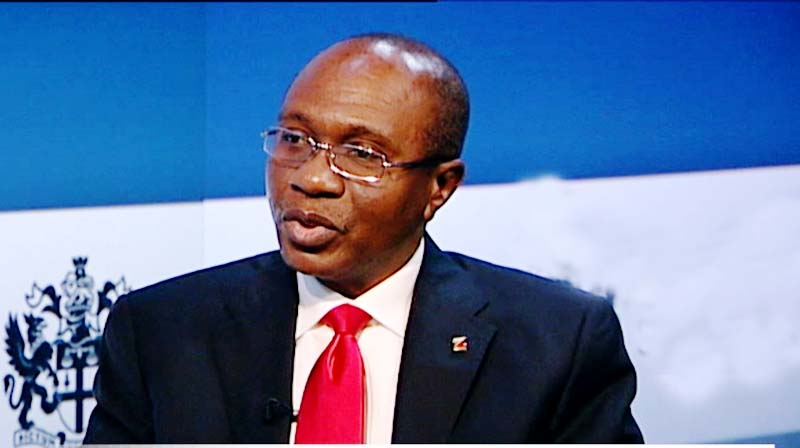Business
CBN Announces N1.68trn Drop in Capital Importation

Foreign investors appear to have boycotted the Nigerian market as capital importation has dropped by $4.08bn (N1.68trn) in one year, latest statistics have shown
Between January and September 2020, total capital importation amounted to $8.55bn, data from the National Bureau of Statistics revealed.
However, according to the latest capital importation report by the NBS, during the same period in 2021, foreign capital inflows into the country fell by $4.08bn (N1.68tn) to $4.47bn.
A breakdown of the 2020 figures shows that in the first quarter of 2020, capital importation into Nigeria stood at $5.85bn, representing an increase of 53.97 per cent compared to Q4 2019.
During this period, Foreign Portfolio Investment contributed the largest amount to capital inflows, accounting for $4.31bn or 73.61 per cent of the total capital importation, followed by ‘other investments’, which accounted for $1.33bn or 22.73 per cent; then the Foreign Direct Investment which accounted for 3.66 per cent or $214.25m.
In terms of sectors, the banking industry led the chart by contributing $2.99bn to the total capital importation in Q1 2020.
In the second quarter of 2020, the aggregate capital inflow fell by 77.8 per cent to $1.29bn when compared to the preceding quarter.
“The largest amount of capital importation by type was received through ‘other investments’, which accounted for 58.77 per cent ($761.03m) of the total capital imported, followed by FPI which accounted for 29.76 per cent ($385.32m); and then the FDI which accounted for 11.47 per cent ($148.59m) of the total capital imported in Q2 2020,” the NBS said.
By sector, capital importation by shares dominated in the second quarter of 2020 reaching $464.57m of the total capital importation.
Capital importation, however, rose to $1.56bn in the third quarter of 2020, representing an increase of 12.86 per cent compared to Q2 2020.
The rise in capital inflows in Q3 was driven mainly by other kinds of investments besides the FDI and the FPI, the NBS said.
According to the bureau, ‘other investments’ accounted for 43.75 per cent ($639.44m) of the total capital importation, while the FDI and the FPI contributed $414.79m and $407.25m, respectively.
Further analysis showed that in Q1 2021, the total value of capital importation was $1.90bn which represented a decline of $3.95bn when compared to the same quarter in 2020.
Capital importation, however, declined to $875.62m in Q2 201, representing a decrease of $415m compared to the $1.29bn recorded in Q2 2020.
The NBS said that, “The largest amount of capital importation by type was received through portfolio investment, which accounted for 62.97 per cent ($551.37m) of total capital importation, followed by other investments, which accounted for 28.13 per cent ($246.27m) of total capital imported and the FDI, which accounted for 8.90 per cent ($77.97m) of total capital imported in Q2 2021.”
It added that by sector capital importation by banking dominated in Q2 2021 at $296.51m.
In Q3 2021, capital inflows rose by over 97 per cent to $1.73bn in Q3 2021 (quarter-on-quarter), and by 18.47 per cent (year-on-year).
Portfolio investment, which accounted for $1,217bn was the major driver of capital inflow in Q3, followed by other investments which accounted for $406.35m while the FDI amounted to $107.81m.
Responding to the development, the Managing Director, Cowry Asset Management, Johnson Chukwu, said that the likely cause of the decline was a decrease in the FPI, which is the major driver of capital importation.
He noted that portfolio investors might be discouraged to invest in the Nigerian market due to forex illiquidity.
He said, “The decline in capital importation has been consistent for the past three years if you look at the data.
“In terms of portfolio investment, which is the major component, I think the issue is that foreign portfolio investors have likely stayed away from the Nigerian market because of foreign exchange illiquidity, as some of the funds that are trapped are yet to be accessed.”
He expressed hope that the efforts of the Central Bank of Nigeria to meet FX demands and clear arrears would incentivize portfolio investors to return to the Nigerian market.
The Punch
Business
FirstBank Launches 500-Seater Bleacher at Carnival Calabar & Festival 2025

West Africa’s premier financial institution and financial inclusion services provider, FirstBank, has officially announced its sponsorship of the Carnival Calabar & Festival 2025, unveiling a landmark addition set to redefine the carnival experience — the first-ever private premium seating area at the event.
The highlight of FirstBank’s participation is the construction of a 500-seater premium bleacher, designed to provide comfort, safety, and an elevated viewing experience for carnival enthusiasts.
Speaking on the sponsorship, the Acting Group Head Marketing and Corporate Communications, FirstBank, Olayinka Ijabiyi, noted that the carnival aligns with the Bank’s First@Arts initiative, a platform dedicated to supporting the creative arts value chain across Nigeria. He said, “We recognise the transformative power of the arts, including carnivals, in inspiring people and strengthening national unity. For more than 131 years, we have supported platforms that promote self-expression, social reflection and cultural exchange. Our investment in the Carnival Calabar & Festival demonstrates our commitment to preserving the nation’s rich cultural heritage through First@Arts.”
“As part of our sponsorship this year, we are introducing the first-ever private 500-seater premium bleacher to further elevate the carnival experience. This exclusive seating is designed to provide exceptional comfort and an unforgettable viewing experience for attendees,” Ijabiyi added.
The Chairman of the Cross River State Carnival Calabar Commission, Gabe Onah, also commented on FirstBank’s sponsorship. “FirstBank’s involvement is a strong demonstration of private-sector support for culture and tourism. This partnership not only enhances the overall quality of the carnival but also strengthens its global appeal,” he said.
The Carnival Calabar & Festival 2025 is officially marketed by Okhma Global Limited, the appointed Official Marketer responsible for brand partnerships, promotional engagements, and ticket sales. Okhma Global Limited has partnered with the Cross River State government in delivering Carnival Calabar & Festival for over ten years, playing a key role in strengthening the carnival’s commercial growth and global visibility.
Business
Yuletide: Ecobank Urges Vigilance, Guarantees Seamless Banking

Ecobank Nigeria, a member of Africa’s leading pan-African banking group, has assured customers of uninterrupted access to banking services throughout the year-end holiday period via its secure and robust digital platforms. The Bank also urged customers to remain vigilant against fraud and scams during the festive season.
Speaking on the development, Victor Yalokwu, Head, Products & Analytics, Consumer & Commercial Banking, Ecobank Nigeria, said the Bank’s digital channels — including the Ecobank Mobile App, Ecobank Business App, USSD *326#, Ecobank Online, OmniPlus, Omnilite, EcobankPay, RapidTransfer, Ecobank Cards, ATMs, PoS terminals, and over 35,000 Ecobank Xpress Point (Agent Banking) locations nationwide — will remain fully available to support customers throughout the yuletide and year-end holiday period.
He noted that customers will continue to enjoy a wide range of services during the period, including local and international funds transfers, bill payments and airtime top-ups, merchant payments, balance inquiries and account statements, as well as cardless cash withdrawals via ATMs.
According to Yalokwu, “Ecobank encourages customers to leverage these digital solutions for safe, fast, and efficient banking, especially during the festive season when convenience and reliability are essential. While physical branch operations may be subject to adjusted working hours in line with public holidays, customers can be assured that Ecobank’s digital platforms are designed to deliver uninterrupted service and enhanced security at all times. Ecobank remains committed to providing innovative financial solutions and exceptional customer service, and we wish all our customers a joyful festive season and a prosperous New Year.”
Yalokwu also cautioned customers to remain vigilant against fraudsters and scammers during the period. “Before you wrap up the year, tighten your security. December brings online sales, travel, and year-end distractions—this is exactly when scammers are most active. From fake festive deals to cloned merchant sites and suspicious messages, staying vigilant helps keep your money safe.”
He advised customers to shop only on trusted websites, never share their PINs, passwords, or one-time passwords (OTPs), avoid banking on public Wi-Fi networks, be cautious of urgent or emotionally charged messages, and regularly review their account activity.
Business
Fidelity Bank Donates Hoses, Water Pumps to Fire Service

Fidelity Bank Plc has donated firefighting and preventive equipment, including hoses and gasoline-powered water pumps, to the Ikoyi Fire Service Station in Lagos, reinforcing efforts to improve emergency response and promote community safety.
The donation was executed under the Fidelity Helping Hands Programme (FHHP) by the bank’s True Serve team. Through the initiative, Fidelity Bank employees identify critical community needs, raise funds, and receive matching financial support from the bank to implement impact-driven projects.
Speaking on the initiative, Divisional Head, Brand and Communications Division at Fidelity Bank, Dr Meksley Nwagboh, said the intervention reflects the bank’s commitment to public safety, environmental protection, and sustainable community development.
“Community safety is a shared responsibility. Fidelity Bank remains committed to supporting initiatives that protect lives, property, and the environment,” Nwagboh said, adding that preventive measures remain more effective than emergency responses.
He noted that providing the right tools to first responders aligns with the bank’s broader goal of enabling people to live safe, meaningful, and empowered lives.
Lagos State Controller of the Federal Fire Service, Controller of Fire (CF) Funke Adebayo, commended Fidelity Bank for the timely support, particularly as the festive season approaches amid dry weather conditions that heighten fire risks.
She urged residents to remain vigilant and warned parents against allowing children to handle fireworks during celebrations, stressing that careless handling of fire could lead to avoidable disasters.
Adebayo also disclosed that the Fire Service has intensified sensitisation visits to corporate organisations to promote fire safety and discourage unsafe practices.
Also speaking, Area Commander, Onikan Fire Station, Chief Superintendent of Fire (CSF) Oswere Michael, expressed appreciation for the donation, noting that it would strengthen the station’s operational capacity.
He encouraged households, businesses, and community members to prioritise fire safety, describing collective responsibility as critical to preventing fire outbreaks.
Fidelity Bank Plc is a full-fledged commercial deposit money bank serving over 9.1 million customers through its digital platforms, 255 business offices across Nigeria, and its UK subsidiary, FidBank UK Limited. The bank has received multiple local and international awards in recognition of its performance in digital transformation, MSME banking, and innovative financial services.
Photo – L-R: Lagos State Controller, Federal Fire Service, CF (Controller of Fire), Adebayo Funke; Tolulope Rojaiye, Marketing Business Partner, Fidelity Bank Plc; Assistant Superintendent of Fire, Ishola Folorunsho Olufemi; and Station Commander, Onikan Fire Station, Lagos, Okeke Ferdinand; during the donation of firefighting equipment to the Federal Fire Service at Ikoyi, Lagos, recently.






